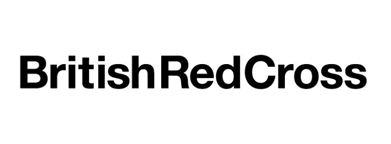Listen, Learning, Leading
This weekend, I was at Regents University, studying towards an accreditation in transformational coaching.
In a nutshell, transformational coaching is the empowering and enabling of individuals to make the behavioural shifts required to achieve personal goals.
It’s pretty cool. It’s predicated on the humanistic approach; a rebellious innovation born in the 60s, in response to the limitations of good old Freud’s psychoanalytic theory.
It controversially states that ALL people are innately good (which is nice). It suggests we are all continually looking for new ways to grow, to become better, to learn new things, and to experience psychological growth and self-actualization.
A lovely concept, isn’t it? I thought so.
As the engaging and inspiring trainer introduced us to the value of listening, silence and being non-judgemental, my over-active mind wandered. I was curious…
Could we apply these principles to managing change within organisations? Not just to individuals, but to teams? What would happen? Could we look upon teams as things that are eager to learn and grow, preparing to take their final steps to the top of a shared Maslow’s pyramid?
What would that look like? What would it feel like?
In a coaching relationship, the first and foremost actions are building trust and building rapport.
Meanwhile, in many organisations, the induction process for ‘change programme of strategic importance’ goes something like: Toilets. Tea. Fire. And sorry-I’ve-got-to-go-to-a-meeting. Read-this.
Then there are the change communications. A 90s style brief cascaded via management, who, all too often, shrug their shoulders, shirking all responsibility if they’re met with their team’s disapproval. (If they haven’t forgotten to share it altogether that is.) Workshops are often tellshops, whilst anyone that disagrees with the approach/vision/benefits from Above is labelled a ‘Resistor’.
Then. Sometimes. The MAGIC happens! We harness and promote collaboration, we break-down barriers, we decide we believe in and trust our people, we take bold steps, and we create
THE SCRUM TEAM
These hives of activity see people making friends, becoming as ‘one’, and investing hours, days, weeks, months, into fantastic solutions that will make waves! Finally! There’s excitement. Feel that energy!! Huge, shiny smiles all round.
Then, shit happens.
The next day, carrying hints of a hangover, the Director of Transformation announces that the Director of Something Important (mates with the CEO), came up with an ingenious idea the night before. *Takes bite of bacon roll*
And could you all just do that instead, please. Thanks.
No one sees trust as it chases rapport out of the room, but they all feel it leave.
I’ve been perpetrator and victim of the above, many a time. Sometimes at the same time! I’m in no position to judge, accuse, or preach, but I am in a position to notice.
Now, I wonder if there’s an alternative?
What if change leadership was more about empowerment, listening, learning and nurturing, and less about directing, convincing, teaching and (let’s face it) preaching.
Sounds fun, doesn’t it?
How about if we considered how our own actions feel for others, would we think twice? If we recognised, and continued to remind ourselves, that rapport and trust are the most important (and effective) ingredients for successful change, would we behave differently?
Surely we would.


